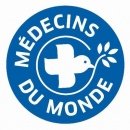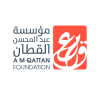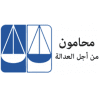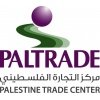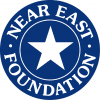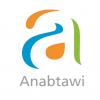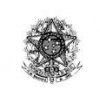Research : “Exploring the Lived Experience of Collective Tra...
Terms of Reference
Research : “Exploring the Lived Experience of Collective Trauma and the prevalence of post-traumatic stress disorders in the Palestinian Context: A Critique of Western Individual Trauma Paradigms and Towards New Intervention Approaches”
Médecins du Monde - Switzerland
About Médecins du Monde Switzerland (MdM-CH):
MdM is an international and independent medical NGO founded in 1980, that provides humanitarian relief and development aid to those most in need. The organization observes the principles of medical ethics and humanitarian aid and is currently active in 77 countries worldwide.
Médecins du Monde Switzerland, created in 1993, has been working in the occupied Palestinian territory since 1994 and is in close cooperation with the two Médecins du Monde network members, currently operating in the region.
Our work focuses on providing quality mental health care to the most vulnerable population in East Jerusalem, West Bank and Gaza, through humanitarian emergency relief and sustainable long-term interventions. We implement an integrated approach through direct Mental Health and Psychosocial Support (MHPSS) field response, capacity building of local stakeholders and target groups, as well as awareness raising and advocacy campaigns.
Introduction:
The Palestinian context is marked by a persistent and generational experience of collective trauma, stemming from the protracted conflict that has spanned decades (Abu-Raiya & Pargament, 2015; Qouta et al., 2008). Unlike the predominantly Western-centric approach to trauma, which often focuses on individual experiences, the Palestinian narrative demands a nuanced exploration of collective trauma (Barakat, 2016). This research seeks to understand how Palestinians collectively navigate trauma, challenging the conventional understanding of individual trauma and critiquing the applicability of existing tools, measurements, and scales in this unique socio-political context.
The Western paradigm of trauma, primarily tailored for individual experiences, may not fully capture the complex interplay of trauma within Palestinian communities (Kira, 2010). This study aims to unravel the intricate web of interactions among traumatized individuals, exploring how collective trauma influences community cohesion and interpersonal ties among Palestinians (Giacaman et al., 2018). The constant, generational nature of the Palestinian conflict necessitates a departure from conventional trauma theories, acknowledging its distinctiveness and the absence of a foreseeable resolution in the near future.
Rationale:
In emergency contexts and ongoing conflict settings, addressing collective trauma is of paramount importance due to its profound and lasting impact on individuals, families, and communities (De Jong et al., 2003; Hobfoll et al., 2007). Traditional approaches that focus solely on individual trauma may overlook the pervasive effects of collective trauma on social structures and communal well-being (Moghimi, 2019). By exploring the collective experience of trauma in the Palestinian context, this research aims to contribute to the development of more effective interventions that acknowledge the interconnectedness of individual and communal healing processes.
Existing trauma theories and intervention strategies may fall short in addressing the multifaceted and enduring nature of Palestinian collective trauma (Summerfield, 1999). Therefore, there is an urgent need to reassess terminologies and develop interventions tailored to the unique characteristics of this prolonged conflict (Panter-Brick, 2010). By doing so, we can pave the way for more effective and culturally sensitive approaches to collective healing within Palestinian communities (Kirmayer et al., 2014).
Objectives:
- To explore the lived experience of collective trauma among Palestinians.
- To critically assess the applicability of Western trauma paradigms, tools, measurements, and scales within the Palestinian context.
- To identify the interactions and dynamics among traumatized members of Palestinian communities and their impact on social cohesion.
- To propose new terminologies and intervention strategies that better address the unique aspects of Palestinian collective trauma.
- To assess the prevalence of post-traumatic stress disorders (PTSD) among members of the Palestinian communities
- To advocate for a paradigm shift in understanding and addressing the impact of the conflict, emphasizing the need for new, culturally sensitive approaches to intervention (Miller & Rasco, 2004).
Key Stakeholders Involved:
- MHPSS professionals
- Community based mental health organizations.
- Community members
Targeted Communities:
This research will focus on engaging diverse Palestinian communities within West Bank including East Jerusalem, spanning different geographical locations and demographic profiles taking in consideration mass incidents locations (Qouta et al., 2007). The inclusion of a wide range of perspectives will contribute to a more comprehensive understanding of collective trauma within the Palestinian context (Kawakami et al., 2012).
Methodology:
To be further developed with the selected consultant.
In general, to capture the richness and diversity of the Palestinian lived experience, a mixed-methods approach involving focus groups (Qualitative) and questionnaires (Quantitative) will be employed (Creswell & Creswell, 2017). This methodology will enable a comprehensive exploration of collective trauma, ensuring a nuanced understanding of its impact on individuals and communities (Braun & Clarke, 2006). Participants will be selected from diverse Palestinian communities, representing various geographical locations and demographic profiles (Patton, 2015).
Proposed Time Frame & Expected Deliverables:
The research will be conducted over 7 months, with flexibility following discussion with the identified consultant, allowing for an in-depth exploration of the lived experiences of Palestinians and the development of robust recommendations for future interventions.
Selection Criteria for Consultant:
For this exercise, MdM-CH is looking for a consultant with the following requirements:
- Educational background and experience working in the field of trauma and mental health.
- Demonstrated strong quantitative and qualitative research skills.
- Demonstrated Research Proficiency: showcase a strong research track record, including past publications and a proven history in the field of trauma studies.
- Possess a profound understanding of the cultural nuances and sensitivities specific to the Palestinian context.
- Familiarity with the humanitarian/development aid sector and I-NGOs/UN functioning is a strong asset.
- Fluent English and Arabic writing skills and experience in high quality reports products draft.
- Excellent analytical skills in assessment, design and evaluation of research.
- Ensure a commitment to ethical research practices, particularly in the realm of trauma studies.
- Exhibit familiarity with obtaining informed consent and maintaining participant confidentiality, with a focus on ethical considerations when working with vulnerable populations.
The consultants’ team shall prepare and submit by 12/01/2024 the following:
- Detailed curriculum vitae for the research team
- Detailed work-plan
- At least one sample of previous work/research in trauma and collective trauma or relevant fields.
- Detailed financial proposal
Interested applicants should send their previously requested documents to:
titled “Research West Bank" before 12/01/2024.




